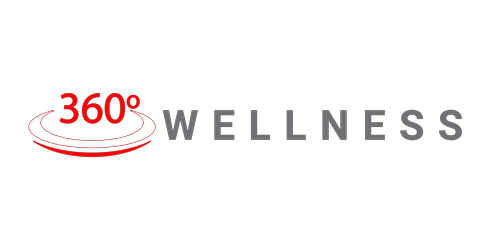Are you drinking enough water throughout the day?
Did you know that even mild dehydration can impair your athletic performance?
Think about hydration tips for athletes – your body is like a finely tuned machine, and water is its lifeblood.
You might experience decreased energy levels, muscle cramps, and even impaired cognitive function without adequate hydration.
But no worries because you can always stay hydrated with the right strategies.
Proper hydration isn't just about drinking water; it's about fueling your body to perform at its peak.
So, grab your water bottle and let’s take a look at the best essential hydration tips for athletes that will help you crush your fitness goals:
Top 8 Hydration Tips for Athletes
1. Stay hydrated consistently
It's crucial for athletes to maintain proper hydration levels throughout the day, not just during training sessions or competitions.
Water is essential for various bodily functions, including regulating body temperature, transporting nutrients, and lubricating joints.
Even mild dehydration can impair physical performance and cognitive function.
Therefore, drinking water steadily throughout the day is recommended to ensure adequate hydration.2. Consume electrolytes during intense exercise
Electrolytes, such as sodium, potassium, and magnesium, play vital roles in maintaining fluid balance, nerve function, and muscle contractions.
During intense exercise, especially in hot and humid conditions, athletes lose electrolytes through sweat.
Replenishing these electrolytes is essential to prevent dehydration, muscle cramps, and fatigue. Sports drinks or electrolyte-enhanced beverages can help replace lost electrolytes during prolonged or vigorous physical activity.
Eager to replenish your lost electrolytes after a rigorous workout session? Get our “Fitline Restorate” from PM International and up your post-workout recovery game.
3. Start hydrating at least 2-3 hours before exercise
Proper pre-exercise hydration is essential for optimizing performance and reducing the risk of dehydration during workouts or competitions.
Aim to start hydrating well in advance, ideally 2-3 hours before exercise, to ensure adequate fluid absorption and distribution throughout the body.
Drinking water or electrolyte-containing beverages before exercise helps prime the body for physical exertion and maintains hydration levels during activity.
4. Sip fluids regularly during workouts
During exercise, the body loses water and electrolytes through sweat to regulate body temperature and cool down.
To prevent dehydration and maintain performance, athletes should consume fluids regularly during workouts or training sessions.
Sipping water or sports drinks at frequent intervals helps replace lost fluids and electrolytes, sustaining hydration and supporting optimal physical output.
5. Carry a bottle of water with you at all time
To facilitate consistent hydration throughout the day, athletes should carry a refillable water bottle with them wherever they go.
Having easy access to water encourages frequent sipping and helps prevent dehydration, which makes it one of the best hydration tips for athletes.
To ensure hydration remains a priority, choose a durable and portable water bottle that can be conveniently carried during workouts, training sessions, and daily activities.
6. Customize hydration plans based on sweat rates
Individual hydration needs vary based on factors such as body size, metabolic rate, exercise intensity, and environmental conditions.
Athletes can benefit from customizing their hydration plans by considering their sweat rate—the amount of fluid lost through sweat during exercise.
By estimating sweat rate and fluid losses, athletes can develop personalized hydration strategies tailored to their specific needs, ensuring optimal hydration and performance.
7. Replenish fluids after exercises
After completing a workout or competition, it's crucial to replenish fluids lost through sweat to support recovery and hydration.
Post-exercise hydration is essential for restoring fluid balance, aiding muscle recovery, and promoting overall well-being.
Athletes should continue to drink water or electrolyte-containing beverages following exercise to replace lost fluids and facilitate optimal recovery and performance for future activities.
8. Check urine color for hydration level (aim for pale yellow)
Monitoring urine color is a simple yet effective way to assess hydration status. A pale-yellow color indicates that you're adequately hydrated, whereas darker urine may signify dehydration. This occurs because when you're dehydrated, your body conserves water by producing more concentrated urine. By paying attention to urine color, athletes can adjust their fluid intake accordingly to maintain optimal hydration levels.
Final verdict
Are you ready to take your hydration game to the next level?
Remember, proper hydration isn't just a suggestion – it's everything when it comes to athletic performance.
By staying ahead of the game with pre-hydration strategies, keeping fluids flowing during exercise, and prioritizing post-workout recovery, you'll be well on your way to reaching your fitness goals.
So, keep in mind these hydration tips for athletes, and see your hydration game skyrocket.

0 comments